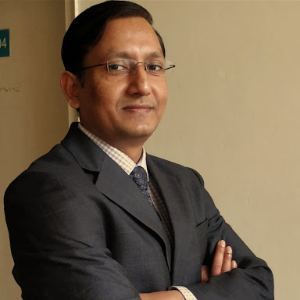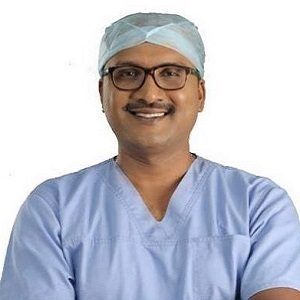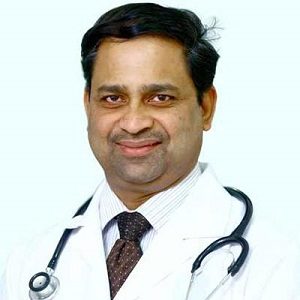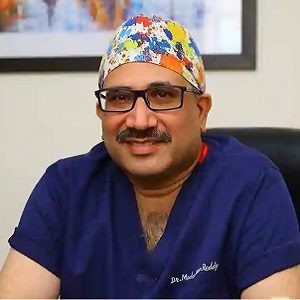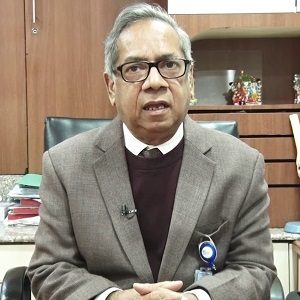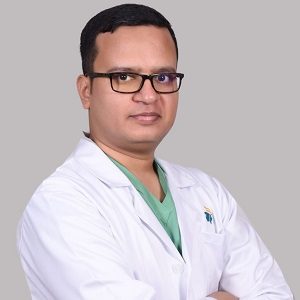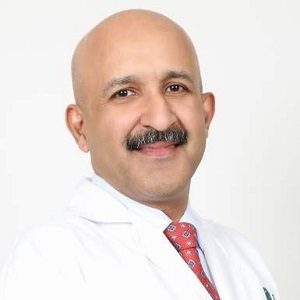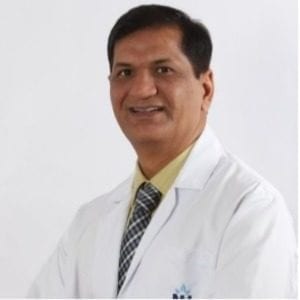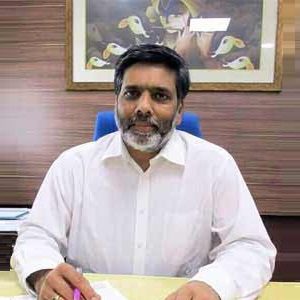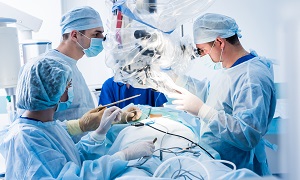Best Doctors in India for Rheumatoid Arthritis treatment
- Orthopedic & Spine Surgeon, New Delhi, India
- Over 14 years’ experience
Profile Highlights:
- Dr. Om Prakash Gupta is a reputed Spine Surgeon in India.
- He is currently functioning as a Consultant – Orthopedics & Spine at Max Smart Super Speciality Hospital, New Delhi
- He has over 14 years of experience.
- Orthopedic Surgeon, Chennai, India
- Over 21 years’ experience
Profile Highlights:
- Dr. A Navaladi Shankar is a well-known spine surgeon and orthopedist in Chennai with 21+ years of experience.
- He completed an MBBS from Al-Ameen Medical College, MNAMS from the National Board of Education, and a Diploma from Sri Ramachandra Medical College and Research Institute.
- Dr. Shankar holds expertise in Laminectomy, Lower Back Pain and Neck Pain Treatment, Arthritis Management, and Trauma Surgery.
- Orthopaedic Surgeon, Chennai, India
- Over 22 years’ experience
Profile Highlights:
- Dr. Kornad P Kosygan is one of the few Orthopedic surgeons in India with a double FRCS degree.
- He has been successful in the diagnosis and treatment of severe Orthopedic problems throughout his career.
- Dr. Kornad is invited as an exclusive Orthopedics Specialist from over six countries in the Asian and European subcontinent.
- Dr. Kosygan has sought extensive training and exposure in the department of Orthopaedics.
- Orthopaedic Surgeon, Chennai, India
- Over 25 years’ experience
Profile Highlights:
- Dr. Madan Mohan Reddy is one of the most acclaimed Orthopedic Surgeons in India with tons of experience and knowledge that he gained over the course of years.
- He has attended several courses across the world, in countries like Switzerland, Germany, Australia, and Italy.
- Orthopedic Surgeon, New Delhi, India
- Over 42 years’ experience
Profile Highlights:
- As one of the most experienced orthopedic surgeons in Delhi, Dr. Chander Shekhar has been practicing for 42 years. He is associated with Indraprastha Apollo Hospital as a consultant.
- Dr. Chander Shekhar is interested in Knee and Hip joint replacement and revision.
- He honed his expertise by completing a fellowship in shoulder and knee arthroscopy in the United States. Besides replacement & revision surgery, he has expertise in Birmingham Hip Resurfacing, BHR with stem, and Minimally Invasive Surgery.
- Orthopedic Surgeon & Spine Surgeon, New Delhi, India
- Over 18 years’ experience
Profile Highlights:
- Dr. Amit Kumar Agarwal is a Delhi-based orthopedic, joint replacement, and spine surgeon consultant who has been assuring joint and spine health for about 18 years.
- Dr. Agarwal has garnered numerous accolades for his work in treating Joints and Musculoskeletal Disorders, pain management, sports injury, and articular degeneration during his career.
- Orthopedic Surgeon, New Delhi, India
- Over 22 years’ experience
Profile Highlights:
- Dr. Vibhu Bahl is one of the finest Orthopedist and Joint Replacement Surgeon in India. He has experience of over 22 years in this field.
- Dr. Bahl has successfully performed multiple complex and primary total knee and hip replacements over his career. Besides these, he specializes in computer-assisted total knee replacements. Patients seeking Arthroscopy for shoulder dislocation, degeneration, and repair must consult him.
- Dr. Bahl participated as a Faculty in many Arthroscopy conferences.
- He is passionate about research and has a long list of publications in prestigious national and international journals.
- Orthopedist, New Delhi, India
- Over 20 years’ experience
Profile Highlights:
- Dr. Havind Tandon is one of the best Orthopedists in Delhi, having nearly two decades of experience. He practices as a senior consultant at Indraprastha Apollo Hospital.
- Many patients who need a knee replacement, repair, or osteotomy have benefitted from his enthusiasm and skill in the field.
- Dr. Havind Tandon worked with Jhonson & Jhonson as a Facilitator for the National Joint Replacement Program.
- Pain management counseling, Joint Replacement Surgery, Spinal Therapy, reverse shoulder replacement, neuropathy assessment, foot drop, treatment of complex fractures, and Adult Joint Reconstruction are just a few of the vital services provided by Dr. Havind Tandon.
- Dr. Tandon was also recognized for his work in the field of research.
- Orthopedic and Spine Surgeon, Gurugram, India
- Over 25 years’ experience
Profile Highlights:
- With over 25 years of experience, Dr. Rajesh Kumar Verma can be generally considered a boon for people suffering from complex, bone, joint, or spine disorders.
- Currently known as one of India’s leading spine experts in India, Dr. Rajesh Kumar Verma performs as many as 50 surgeries in a month. The types of surgeries he performs include all types of spine surgeries, joint replacements, as well as complex trauma surgeries.
- Orthopedic Surgeon, Chennai, India
- Over 25 years’ experience
Profile Highlights:
- Dr. Krishnamurthy K provides consultation at the Apollo hospitals of Chennai.
- He has also worked as a senior registrar and assistant surgeon earlier and has sound knowledge of his field.
- One can reach Dr. Krishnamurthy K for treatment of fractures, joints, shoulders, knees, hip replacement, etc.
Best Hospitals in India for Rheumatoid Arthritis treatment
Fortis Hospital, Shalimar Bagh
- City: New Delhi, India
Hospital Highlights:
- Fortis Hospital in Shalimar Bagh is a multi-super specialty hospital that strives to provide world-class patient care by leaving no stone unturned.
- Fortis, Shalimar Bagh, with 262 beds and a 7.34-acre footprint, provides the best level of medical care through its team of doctors, nurses, technicians, and management professionals.
Reliance Hospital, Mumbai
- City: Mumbai, India
Hospital Highlights:
- Reliance Hospital is one of the best super-specialty care hospitals in Navi Mumbai.
- The main purpose of this hospital is to become a trustworthy place for the best health and hope for society. The hospital is well connected to the suburbs of Mumbai and Navi Mumbai.
- The hospital has various specialty departments, viz., Accident & Emergency, Anesthesiology, Dental Services, Dermatology, Diabetology, Dietetics Nutrition, Endocrinology, ENT, Gastroenterology, General Surgery, Gynaecology And Obstetrics, Hepato Pancreato Biliary Surgery, Infectious Disease, Internal Medicine, Interventional Radiology, Laboratory Medicine, Minimal Access Laparoscopic Surgery, Nephrology, Neurosciences, Opthalmology, Orthopaedics, Paediatrics, Pain Management Palliative Care, Physical Medicine Rehabilitation, Plastic And Reconstructive Surgery, Psychiatry, Pulmonary Medicine, Radiology, Rheumatology, Transplant, Urology Andrology, Vascular Surgery
Lilavati Hospital & Research Centre, Mumbai
- City: Mumbai, India
Hospital Highlights:
- Lilavati Hospital & Research Centre is India’s premier multi-speciality tertiary care hospital and has been recognised as a global medical excellence centre.
- Lilavati Hospital & Research Centre has built an unrivalled level of trust with its patients over the years, thanks to a solid foundation that comprises cutting-edge facilities, the best medical competence, research, education, and charity endeavours.
- The hospital is quite proud of the fact that it now serves patients from all kinds of backgrounds, not just from the United States but from all around the world.
- The hospital has a total of 323 beds, one of the largest Intensive Care Units (ICUs), 12 Operation Theatres with modern amenities, over 300 consultants, and almost 1,800 personnel.
Venkateshwar Hospital, Dwarka, New Delhi
- City: New Delhi, India
Hospital Highlights:
- State-of-the-art technology and devoted healthcare professionals have been brought together under one roof at Venkateshwar Hospital to provide genuine medical care. The hospital’s professionals work together as a team to deliver the best possible treatment to their patients, using the most sophisticated equipment and information technology.
- Venkateshwar Hospital’s mission is to attain global excellence in healthcare by employing evidence-based, ethical clinical practices and cutting-edge technology by a team of highly skilled experts.
Rheumatoid Arthritis
A chronic, inflammatory disorder affecting more than just joints is called rheumatoid arthritis. It can damage a wide variety of body systems in some people, like lungs, skin, heart, eyes and blood vessels. It is an autoimmune disorder that takes place when the immune system attacks its own body tissues mistakenly. The condition affects the lining of the joints. This causes a painful swelling resulting in joint deformity and bone erosion.
Causes of Rheumatoid Arthritis
When your immune system attacks the synovium (the lining of the membranes surrounding the joints), it causes rheumatoid arthritis. The synovium thickens due to the resulting inflammation that destroys the cartilage and bone within the joint. The ligament and the tendons hold the joint together. In rheumatoid arthritis, they weaken and stretch. The joint loses its shape & alignment because of this. Your genes don’t cause the disease but make you susceptible to environmental factors like an infection from bacteria and viruses which trigger the disease.
Symptoms of Rheumatoid Arthritis
The symptoms of rheumatoid arthritis may be:
- Joint stiffness that worsens in the morning or after an inactivity.
- Warm, tender and swollen joints.
- Fever, fatigue and loss of appetite.
In the initial stages, the disease affects the smaller joints, especially the joints attaching your fingers to the hands and the toes to the feet. With the progression of the disease, symptoms start spreading to the ankles, wrists, elbows, knees, shoulders, and hips. The symptoms may also occur on the same joints on both sides of the body in some cases. A significant number of people suffering from rheumatoid arthritis experience other signs and symptoms without the involvement of the joints. The disease may affect other non-joint structures like heart, skin, bone marrow, eyes, salivary glands, blood vessels, lungs, nerve tissue and kidneys.
The symptoms vary in severity and the person may or may not experience the symptoms at times. There might be a period of increased disease activity or a period of relative remissions when the pain and swelling disappear. The disease may cause the joints to reform and ultimately, shift from their place to some other.
Diagnosis of Rheumatoid Arthritis
The disease is difficult to diagnose initially. However, your doctor can check your joints for redness, swelling and warmth during physical examination along with checking the muscle strength and your reflexes.
Blood tests
People who suffer from rheumatoid arthritis experience increased ESR (erythrocyte sedimentation rate) or CRP (C-reactive protein). This indicates that an inflammatory process is present in the body. Other blood tests may include looking for the anti-cyclic citrullinated peptide (anti-CCP) antibodies or rheumatoid factor.
Imaging tests
Your doctor may ask you to take X-rays to aid in tracking the progression of the disease in the joints of your body over time. Ultrasound tests and MRI help your doctor understand the severity of rheumatoid arthritis in your body.
Treatment options for Rheumatoid Arthritis
Medications
- Steroids- Corticosteroid medications like prednisolone reduce pain, inflammation and slow down the damage to the joints. The side effects of these drugs include weight gain, thinning of bones and diabetes. Your doctor may prescribe corticosteroids to relieve the acute symptoms.
- NSAIDs- Non-steroidal anti-inflammatory drugs (NSAIDs) reduce the inflammation and relieve the pain in your body. Your doctor may prescribe stronger NSAIDs to you. The side effects of these drugs are heart problems, stomach irritation and kidney damage.
- DMARDs- Disease-modifying antirheumatic drugs slow down the progression of the disease while saving the joints and tissues from permanent damage due to rheumatoid arthritis. The most common disease-modifying antirheumatic drugs are leflunomide (Arava), methotrexate (otrexup, trexall), sulfasalazine (Azulfidine) and hydroxychloroquine (Plaquenil). The side effects of these drugs may be bone marrow suppression, liver damage and severe lung infections.
- Biologic agents- Biologic agents or biologic response modifiers are a new class of disease-modifying antirheumatic drugs and include adalimumab (Humira), baricitinib (Olumiant), etanercept (Enbrel), infliximab (Remicade), sarilumab (Kevzara), tofacitinib (Xeljanz), abatacept (Orencia), certolizumab (Cimzia), golimumab (Simponi), rituximab (Rituxan), tocilizumab (Actemra), and anakinra (Kineret).
They target some parts of the immune system triggering inflammation and causing joint & tissue damage. These drugs also increase the risk of infection. Biologic DMARDs are the most effective upon pairing with a nonbiologic DMARD like methotrexate.
Therapy
Surgery
Synovectomy
Synovectomy is performed on hips, knees, wrists, elbows and fingers; it removes the inflamed lining of the joint called synovium.
Tendon repair
Joint damage and inflammation cause the tendons around your joints to rupture or loosen. Your doctor will repair the tendons around the joints.
Joint fusion
Your doctor may recommend surgically fusing a joint to realign or stabilize a joint. It also relieves pain when joint replacement is not a favorable option.
Total joint replacement
Your doctor or surgeon may remove the damaged parts of the joint during the surgery and replace them by inserting a prosthesis made from plastic and metal.
Risks and complications
There is an equal risk of infection, bleeding and pain during surgeries. Your doctor may recommend the surgery best suited for you according to your condition and severity of the disease. You can also discuss the benefits and possible risks of each surgery before opting for one with your doctor.

